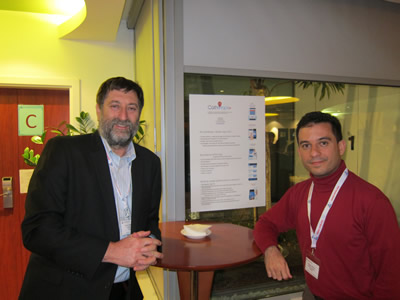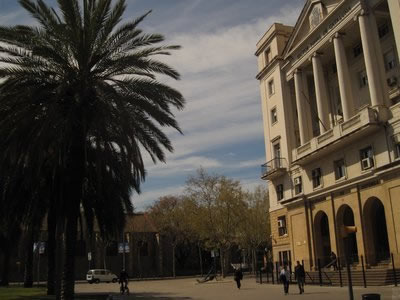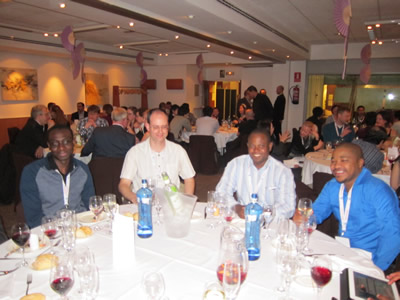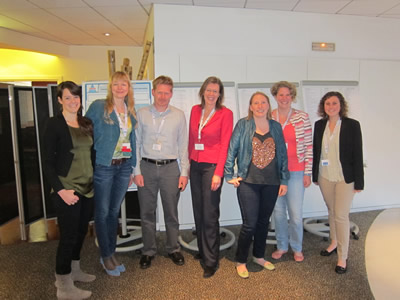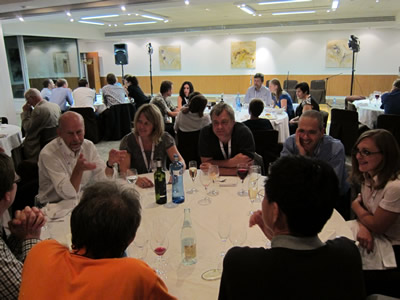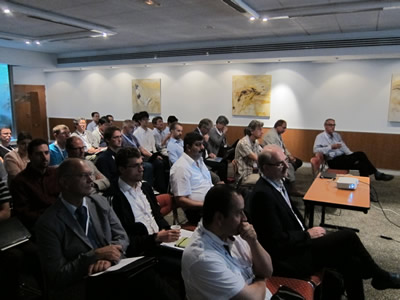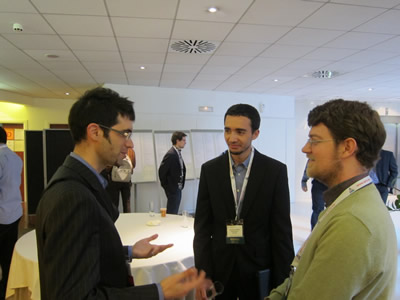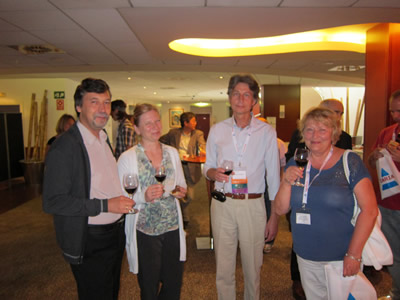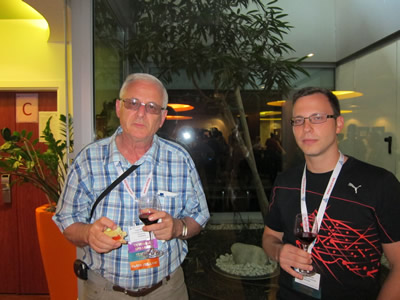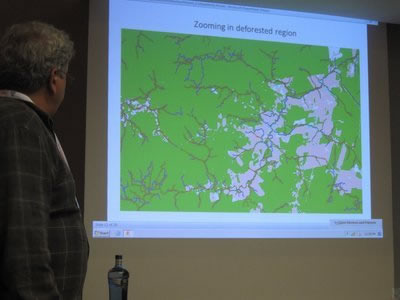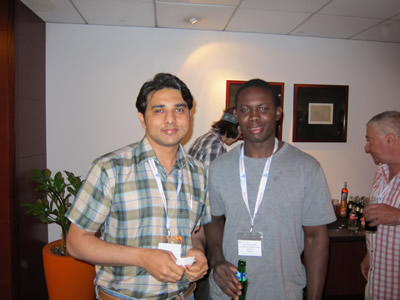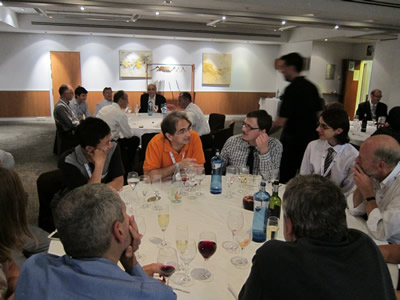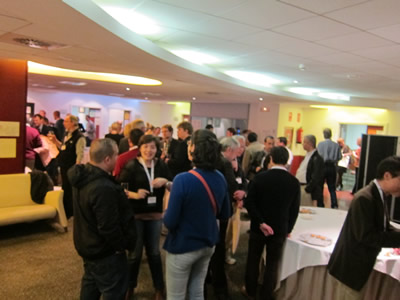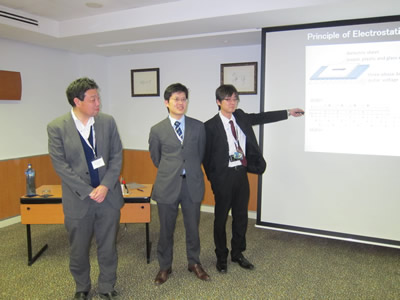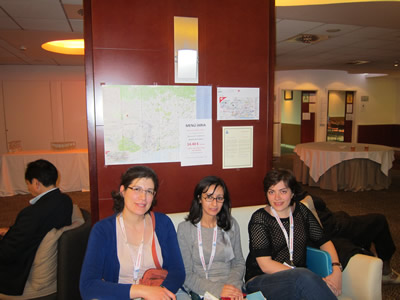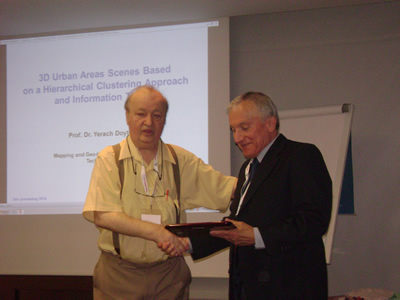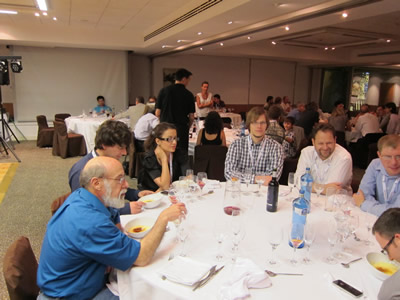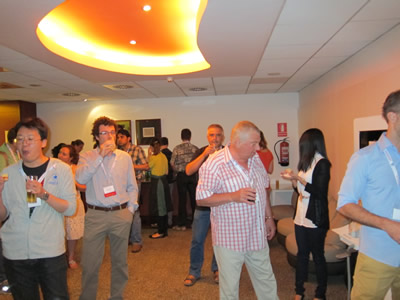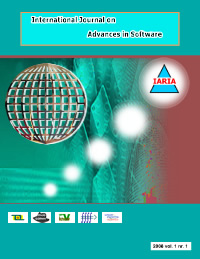GEOProcessing 2024 - The Sixteenth International Conference on Advanced Geographic Information Systems, Applications, and Services
May 26, 2024 - May 30, 2024
GEOProcessing 2024
Onsite and Online Options: In order to accommodate a large number of situations, we are offering the option for either physical presence or virtual participation (pdf slides or pre-recorded videos).
ISSN: 2308-393X
ISBN: 978-1-68558-168-8
GEOProcessing 2024 is colocated with the following events as part of DigitalWorld 2024 Congress:
- ICDS 2024, The Eighteenth International Conference on Digital Society
- ACHI 2024, The Seventeenth International Conference on Advances in Computer-Human Interactions
- GEOProcessing 2024, The Sixteenth International Conference on Advanced Geographic Information Systems, Applications, and Services
- eTELEMED 2024, The Sixteenth International Conference on eHealth, Telemedicine, and Social Medicine
- eLmL 2024, The Sixteenth International Conference on Mobile, Hybrid, and On-line Learning
- eKNOW 2024, The Sixteenth International Conference on Information, Process, and Knowledge Management
- ALLSENSORS 2024, The Ninth International Conference on Advances in Sensors, Actuators, Metering and Sensing
- SMART ACCESSIBILITY 2024, The Ninth International Conference on Universal Accessibility in the Internet of Things and Smart Environments
GEOProcessing 2024 Steering Committee Chair
| |
 |
Claus-Peter Rückemann
Universität Münster / DIMF / Leibniz Universität Hannover, Germany
|
|
|
|
GEOProcessing 2024 Steering Committee
|
 |
Thomas Ritz
FH Aachen
Germany
|
|
 |
Yerach Doytsher
Technion - Israel Institute of Technology, Haifa
Israel
|
|
 |
Roger Tilley
Sandia National Laboratories
USA
|
|
 |
Alexey Cheptsov
Information Service Center of the University of Stuttgart (TIK)
Germany
|
|
 |
Jui-Hsin (Larry) Lai
Ping-An Technology - Research Lab
USA
|
|
|
|
GEOProcessing 2024 conference tracks:
Geo-spatial fundamentals
Fundamentals of geo-information; New trends in GIS technologies and research; Techniques for geographical representation; Integrated architectures for geo-spatial information; Geo-spatial data in net-centric environment; Geo-spatial technology; Discovery, indexing and integration of geographical information systems; Geo-processing of distributed data; Geo-information processing; Use of computational geometry for GIS problems; Virtual globes and their application to scientific research; Spatial decision support systems
Trends in Geo-cognition
Cognitive geo-spatal images; Real 3D and Pseudo -3D cartographic visualization; Geographic cognitive models for cyberspace; Spatial pattern cognition; Tactile maps and graphics; Spatio-textual similarity; Toponym disambiguation; Geo-spatial intelligence and open source data; Distributed convoy pattern mining; Activity recognition of passengers (bus, airlines, railway, taxi, etc.); Fusing data from smart phones; Collaborative navigation; Visual perception in landscapes; Pedestrian mobility behavior patterns; Business news spatio-temporal data; Geo-social co-location mining; Spatial drift analysis; Processing cascading information; Web 2.0 Geo-search
Trends on Big Geo-Data
Public Geospatial information; Visualizations of movement data; Storage and Indexing spatial big data; Geospatial Big Data analytics; MapReduce for spatial data; Geographical hotspots; Large-scale geospatial data; Global-scale Earth data in Cloud; Detecting geo-anomalies; Geosocial data; Historical maps and big data; Big data and satellite imagery; Graph-based tractography; Web-based mapping; Geotagged Twitter data; Twitter hashtag discovery; Geo-sensor networks; Geospatial data semantic catalogue; Processing large spatial queries
Trends of Urban-Geo
Interactive maps; Cartographic rules and geographic features; Audio enhanced map animation; Map legibility and automated cartography; Spatial decisions and urban planners; Maps and demographic uncertainty for demographic; Emotional maps and Smart Cities decisions; End-User centered flood evacuation maps; Noise maps; Avalanche hazard maps; Location data and privacy; Scientific terrain visualization; Vehicular spatio-temporal computing; Urban spatial crowdsourcing; Personal driving preferences map; Street networks semantics; Self-similarity in urban traffic systems; Optimizing public and private transportation maps; Traffic and road sensor data; Interactive facility maps (gas stations, electric vehicular points, banks, etc.); Time-depended routing maps (emergency, ambulance, fire-stations, etc.); CO2 emissions maps; Visible landmarks; Connected cell towers maps; Public transport assistance
Geo-spatial Web Services
Geo-spatial Web Services and applications; Geo-spatial Web Services and simulation and modeling; Geo-spatial Web Services and sensors; Geo-spatial Web Services and interoperability; Geo-spatial Web Services and processing; Geo-spatial Web Servcies and spatial analysis; Geo-spatial Web Services and society; Geo-spatial Web Services and information retrieval; Geo-spatial Web Services and human computer interaction; Geo-spatial Web Services and mobility
Assessment of Spatial Data Quality
Assessing Quality of Volunteered Geographic Information; Frameworks and automated methods to assess spatial data quality; Assessing spatial data fitness for use; Development of new indicators of spatial data quality; Spatial data quality communication and visualization.
GIS
Wireless and mobile GIS; Integration of remote sensing, GIS and GPS; Statistics and application models of spatial data; GIS for the environment and health; Satellite positioning technology and LBS; Urban GIS and its applications; Theories and algorithms in GIS; Government and public GIS
Geo-spatial simulation and visualization
2D and 3D information visualization; Distributed simulations and sensor webs; Simulation modeling dynamic geo processes; Exploratory spatial data analysis; Fine-grained, terrestrial monitoring platforms; Geo-visualization and geo-visual analytics; Visualization of geospatial uncertainty; Representation and visualization of geospatial data
Geo-modeling
Standards and geo-spatial metadata; Novel geo-spatial data processing and management mechanisms; Spatio-temporal data modeling and reasoning; 3D modeling and GIS; Modeling and analysis of terrains; Modeling uncertainty in geo-spatial information; Spatial and spatio-temporal statistics; Geo-spatial and spatio-temporal data mining; Virtual modeling of large geographic areas; Time-geography modeling; Geospatial data analytics
Digital cartography data
Digital geographical libraries; Exploratory cartography and interfaces; Digital cartography; Automated mapping and map generalization; Cartographic theory and applications; Data models in cartography; Geographical search engines
Earth Geo-observation
Climate change and the global environment; Data systems for the future Earth observation satellites; Calibration and validation of remotely sensed data; Earth observation sensor networks and applications; Earth observation technology and systems
Geo-sensing
Acquisition and processing of remotely sensed data; Information extraction from remotely sensed data; Data mining across sensor; Intelligent sensors/sensor fusion; Co-operative sensing and organization; Sensor information management systems; Spatio-temporal sensor data mining; Sensor networks and interaction with actuators; Geo-sensor specialized networks (e.g. disaster management, early warning systems, environmental monitoring)
Specific geo-data processing
Seismic data processing (stacking, migration, post-processing, interpretation); Tomography (algorithms, methods); Electromagnetic sounding; Near surface methods (archaeology, urban and environmental planning); Combined geophysical methods (gravimetry, magnetics, borehole methods); Seismology and planetology; Geo-natural data on phenomena (hurricane, winds, flooding, etc.); Underground geo-reserves, natural resources, exploration (gas, oil, metals, etc.); Natural geo-evolution and morphology (glaciers, oceanic streams, etc.); Geo-marine life; Geology and earth system simulation and modelling
Geo-spatial domain applications
Geospatial Technologies for Disaster Management;Geology and hydrogeology geographical data; Standardization of geodata and geoservices; Environment and land surveying; Oceanographic geo-information; Natural resource information systems; Remote sensing geospatial data collection; Geo-spatial data and vehicular technologies; Geology and Hydrology applications; Location-based services; Environmental monitoring; Special applications: 3D cadastre, traffic management, etc.
Managing geo-spatial data
Managing uncertainty in spatial information; Automatic mapping (possibly web-based ...); Digital elevation/shape modeling; Web-based visualization of statistical data within a geographic framework; Tools and links between GIS and statistical software packages; Business mapping (spatial analysis for business processes as customer segmentation, churn analysis, etc.); Wireless sensor networks for spatial applications; Errors and their measurement in spatial data
Deadlines:
Submission | Mar 09, 2024 |
Notification | Mar 31, 2024 |
Registration | Apr 16, 2024 |
Camera ready | Apr 26, 2024 |
Deadlines differ for special tracks. Please consult the conference home page for special tracks Call for Papers (if any).
